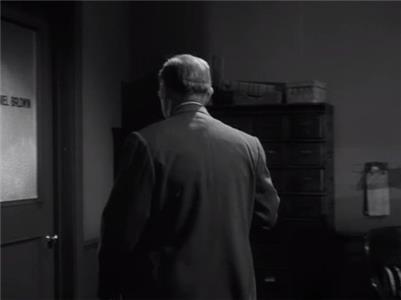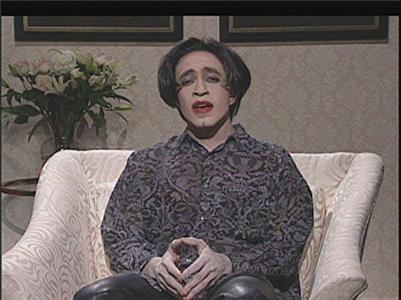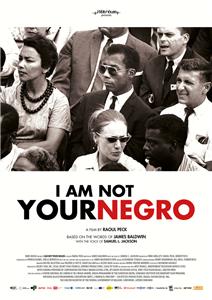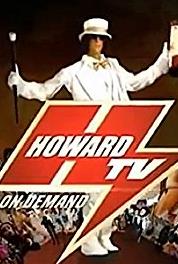Alfred Hitchcock Presents A Bullet for Baldwin (1955–1962) Online

- Original Title :
- A Bullet for Baldwin
- Genre :
- TV Episode / Crime / Drama / Mystery / Thriller
- Year :
- 1955–1962
- Directror :
- Justus Addiss
- Cast :
- Alfred Hitchcock,John Qualen,Sebastian Cabot
- Writer :
- Eustace Cockrell,Francis M. Cockrell
- Type :
- TV Episode
- Time :
- 30min
- Rating :
- 7.2/10
Mr. Stepp has just been fired from Baldwin, King & Co., and he goes to see Baldwin one more time to plead for his job. When Baldwin refuses to discuss it, Stepp takes a gun from his desk drawer, returns to Baldwin's office, and shoots him to death. After wandering the streets aimlessly, Stepp decides to go back to his lodgings to wait to be arrested. Instead, he is awakened by a telephone call from Baldwin's secretary, asking why he is not at work. When Stepp arrives at the office, Baldwin is alive and well, and everyone acts as if nothing is out of the ordinary. The baffled Stepp even gets his job back.
| Episode complete credited cast: | |||
| Alfred Hitchcock | - | Himself - Host | |
| John Qualen | - | Mr. Stepp | |
| Sebastian Cabot | - | Nathaniel Baldwin / Mr. Davidson | |
| Phillip Reed | - | Walter King (as Philip Reed) | |
| Ruth Lee | - | Neighbor | |
| Cheryll Clarke | - | Miss Abigail Wilson - Secretary | |
| James Adamson | - | Janitor | |
| Don Mcart | - | Albert (as Don McArt) | |
| Kate Drain Lawson | - | Landlady | |
| Robert Patten | - | Detective (as Bob Patten) | |
| David Dwight | - | Fireman | |
| Arthur D. Gilmour | - | Neighbor (as Arthur Gilmour) |
This episode takes place in San Francisco in November 1909.










User reviews